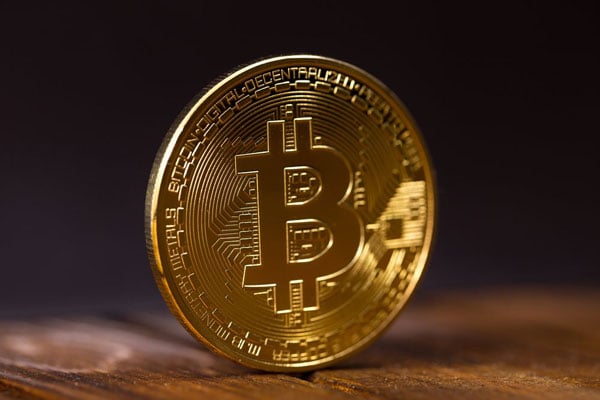Prime
Regulating cryptocurrency must be everyone’s concern

Mr Nils Andersen-Roed. Photo / Courtesy
What you need to know:
- According to Chainalysis, of all transactions made with cryptocurrencies in 2021, 0.15 percent were associated with some type of illicit activity
- The UN estimates that between 2 percent and 5 percent of traditional fiat (cash) - about $800b to $2 trillion - was associated with some type of illicit activity.
Cryptocurrency, especially in Africa is viewed with suspicion. However, its growth and influence is beginning to be felt across the globe. Bernard Busuulwa spoke to Mr Nils Andersen-Roed, the Binance head of intelligence and investigations in charge of Europe, Middle East on matters related to security and safety of cryptocurrency.
What is the average number of users in Africa’s cryptocurrency market and what do you think is fueling the adoption of crypto users in the region?
While I cannot speak on the average number of users, I can say we have seen a rise in general user interest, education and media interest.
Africa’s interaction with crypto over the last few years has established some important cases and opportunities for greater financial inclusion. Its solving issues of cross-border payments and remittances and currency devaluation, among others.
Many Africans look to crypto for wealth creation and financial freedom. Much like Southeast Asia and Latin America, millions of people live below the poverty line, so it’s natural that many look for innovative, non-traditional ways to create wealth.
As the market matures, users grow and systems are established, the future of blockchain in Africa is inevitably prosperous.
What is the prevailing fraud risk in Africa’s cryptocurrency market?
The major concern people express about crypto is security risks such as fraud, scams, money laundering and terrorism financing. I would like to share some facts about fraud risks. According to Chainalysis, of all transactions made with cryptocurrencies in 2021, 0.15 percent were associated with some type of illicit activity.
The UN estimates that between 2 percent and 5 percent of traditional fiat (cash) - about $800b to $2 trillion - was associated with some type of illicit activity.
What steps do you take to mitigate these risks?
We regularly put in place mechanisms such as know your customer, anti-money laundering, secure fund and account restrictions to protect users.
What are the differences in transaction risks that lie between Central Bank digital currencies and private sector virtual currencies?
Both central bank digital currencies and cryptocurrencies have technological similarities that enable transfer of value. The main difference is that cryptocurrencies such as bitcoin use a decentralised blockchain, which means that they aren’t controlled by one central entity while central bank digital currencies are governed by a centralised entity.
When it comes to the transaction risks, the public blockchain record (on-chain analytics) of virtual currencies such as bitcoin has greater transparency on source of funds, making it easier to detect and investigate illicit activity.
Has the crypto industry contemplated partnerships to enhance user safety and protection?
The sustainable and secure growth of the crypto ecosystem requires partnership and dialogue with law enforcement to track down illicit actors and fraud.
In addition to partnering with public law enforcement, we also work with private sector organisations and cryptocurrency tracing companies to monitor and detect suspicious activity.
As Binance, we go above and beyond industry standards to detect bad actors through proactive measures and collaboration with private and public entities.
How would you describe the quality of anti-money laundering compliance standards adopted by cryptocurrency providers in Africa?
It is difficult to give an industry picture. However, as Binance, we have one of the strictest anti-money laundering policies.
We have built a robust compliance programme that incorporates anti-money laundering principles and tools used by financial institutions to detect and address suspicious activity. These compliance practices enable us to meet the requirements of regulated entities in the region, allowing us to enter into key partnerships.
Could you identify any legal precedents recorded in relation to criminal investigations, prosecutions, and convictions tied to cryptocurrency within and outside Africa?
We have been vital in dealing with Lazarus, a cybercrime group suspected to be operated in North Korea. Our team has previously collaborated with law enforcement to freeze the accounts of Lazarus over theft of $5.8m worth of cryptocurrency from Ronin/Axie Infinity.
What digital security lessons did you learn as a result of recent Covid-19?
Covid-19 changed the way we live, impacting the well-being of people and the global economy. More users have sought different ways to diversify their income and crypto has become a major part of that.
In light of increased user interest in the space, some security lessons were picked in terms of user education. We have seen an increase in research as users seek ways to protect themselves from scammers.
Beyond this, we have also continued to encourage and remind users that security is key. Individuals must store their own private keys safely and create proper encrypted backups.
For those who are new to cryptocurrencies, good cyber hygiene might be scary and complicated. To assist with this, we have made significant investments in numerous wallet developments. As more individuals participate in cryptocurrencies, it will be crucial to combine security with ease of use.
What do you think is preventing African regulators from bridging regulatory gaps?
Crypto and even the regulation of crypto are such new concepts and many governments are trying to get more clarity about the space.
Many African regulators are now beginning to learn about crypto, understand its impact and look towards regulating it in order to protect users while encouraging innovations.
Over the past year, we have made great strides in engaging governments and regulatory bodies across the continent. We welcome this and take a collaborative approach in working with regulators and we take our compliance obligations very seriously. We are ready to assist regulators to find an optimal way to set a fair playing field.





